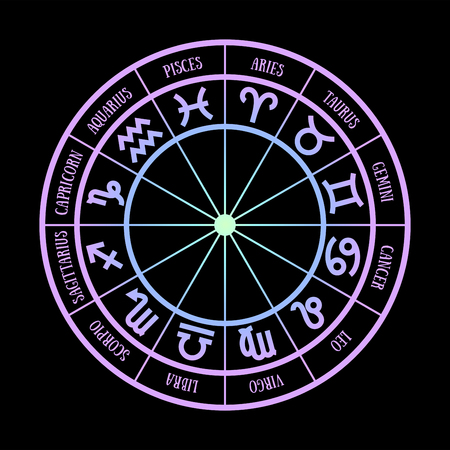Understanding the Indian Perspective on Astrology and Child Development
In India, astrology is not merely a mystical practice—it is an intrinsic part of family life, especially when it comes to nurturing children. For generations, parents have turned to Janam Kundali, or the birth chart, as a foundational tool in understanding their child’s innate qualities and hidden talents. The process begins at birth, with the exact time and place meticulously recorded to create a personalized horoscope. This ancient tradition reflects a deep cultural belief that planetary positions influence every aspect of a person’s journey, right from their interests and aptitudes to potential challenges.
Indian families often see the Kundali as more than just a document; it becomes a guiding map for important decisions regarding education, hobbies, and even career paths. It’s common for parents to consult astrologers before enrolling children in extracurricular activities or choosing their academic streams. This approach is rooted in the desire to recognize and nurture unique strengths early on, giving each child a supportive environment tailored to their cosmic blueprint. In a country as diverse as India, where spirituality and daily living are closely intertwined, astrology offers comfort and guidance—helping families unlock the full potential of the next generation.
Key Elements of a Child’s Janam Kundali That Indicate Talents
In the vibrant tradition of Indian families, the birth chart or Janam Kundali is often seen as a sacred roadmap to a child’s destiny. Vedic astrology provides deep insights into the latent abilities of children by analyzing specific houses, planetary placements, and yogas. Understanding these key components can help parents recognize and nurture their child’s unique talents from an early age.
Major Astrological Houses Linked with Talents
Each house in the Janam Kundali governs different aspects of life. When it comes to talent identification, some houses play a significant role:
| House | Significance | Talent Type |
|---|---|---|
| 3rd House | Communication, courage, artistic expression | Writing, music, performing arts |
| 5th House | Creativity, intelligence, learning ability | Academics, fine arts, innovation |
| 6th House | Discipline, competition, service | Athletics, competitive exams |
| 9th House | Higher knowledge, philosophy, travel | Academic excellence, spiritual inclination |
| 10th House | Career, public image, ambition | Leadership roles, professional skills |
Planetary Positions and Their Impact on Talents
The planets occupying or aspecting these houses further define the nature of the child’s potential. For example:
- Mercury: Strong Mercury in 3rd or 5th house indicates eloquence and logical intelligence—ideal for writers or speakers.
- Venus: Favourable Venus enhances creativity and artistic flair in arts and music.
- Mars: Well-placed Mars gives physical strength and courage—excellent for sports and athletics.
- Jupiter: A powerful Jupiter brings wisdom and academic prowess.
- Sun: Sun’s strength in the 10th house can point to leadership qualities and self-confidence.
Culturally Relevant Yogas to Watch Out For
Certain yogas (planetary combinations) are especially celebrated in Indian astrological practice when identifying hidden talents:
- Buddhi Aditya Yoga (Sun + Mercury): Signifies intellectual brilliance; often found in scholars or scientists.
- Saraswati Yoga (Jupiter + Mercury + Venus): Indicates exceptional academic and artistic abilities.
- Dhan Yoga: Shows financial acumen and potential success in business-oriented children.
- Panch Mahapurush Yogas: Depending on which planet forms this yoga (Mars/Budha/Jupiter/Venus/Saturn), it can signify excellence in respective fields like sports, communication, knowledge, arts or discipline.
The Importance of Dasha Periods (Planetary Periods)
The timing of planetary periods (dasha bhuktis) is also crucial. A favourable dasha activates certain houses or planets that reveal or amplify a child’s talents at particular ages. For example, a child entering Mercury dasha may suddenly show heightened interest in academics or language skills.
This holistic understanding of a child’s Janam Kundali empowers Indian parents to guide their children thoughtfully—aligning ancient wisdom with modern aspirations for personal growth and fulfilment.

3. Common Signs in Indian Astrology Linked to Unique Abilities
In Indian astrology, every child’s birth chart is a treasure map pointing towards their hidden talents and potential. Astrologers often look for certain signs within the natal chart that are traditionally linked to unique abilities. Understanding these common indicators can help parents recognise and nurture a child’s special gifts from an early age.
Nakshatras: The Guiding Stars of Talent
Nakshatras, or lunar constellations, hold profound significance in Indian astrology. Each nakshatra is believed to bestow particular qualities upon those born under its influence. For instance, children born under Ashwini are often quick learners and naturally adventurous, while those influenced by Rohini may show early creative or artistic inclinations. Magha nakshatra is associated with leadership skills and charisma, making children under its sway natural organisers or performers.
The Dasha System: Timing of Unfolding Talents
The planetary periods, or dashas, play a vital role in revealing when a childs inherent abilities are likely to surface. For example, during a strong Mercury dasha, children might display exceptional communication skills or intellectual curiosity. Venus dasha could awaken artistic talents or a flair for music and beauty. Understanding the ongoing dasha helps parents anticipate and support their childs growth at the right time.
Traditional Interpretations: Planets and Their Gifts
Astrologers also interpret the positions of key planets for deeper insights into a child’s gifts. Jupiter placed well can indicate wisdom beyond years or spiritual inclination; Mars can suggest athleticism or courage; Saturn often points to discipline and perseverance, crucial for mastery in any field. These interpretations are deeply rooted in India’s astrological traditions and still resonate with families seeking guidance today.
Practical Application for Indian Families
By observing these signs—nakshatras, dashas, and planetary placements—parents can gain clarity about their child’s natural inclinations. This awareness encourages personalised nurturing, whether it means enrolling a child in classical dance classes because of strong Venus influences, or supporting scientific curiosity inspired by Mercury. In this way, astrology becomes not just a tool for prediction but a compass for mindful parenting in the Indian context.
4. Interpreting Doshas and Remedies: Nurturing Growth, Not Fear
In Indian astrology, the concept of doshas—planetary imbalances in the birth chart—often raises concerns among parents. However, it is important to adopt a positive and growth-oriented mindset when addressing these astrological nuances in children. Instead of fostering anxiety or fear, Indian tradition encourages using dosha interpretations as a tool for understanding, healing, and nurturing hidden talents.
Reframing Doshas as Opportunities for Growth
Astrologers in India often remind families that every chart has its unique strengths and challenges. Rather than seeing doshas as obstacles, parents are encouraged to view them as opportunities to strengthen character and unlock latent abilities. For instance, a Manglik dosha might be associated with assertiveness, while Rahu-Ketu influences could point to unconventional creativity or innovation.
Popular In-Home Remedies & Traditions
Indian households have cherished traditions for balancing doshas and supporting children’s growth. These remedies are not just rituals—they foster family bonding and positive intentions. Here is a table highlighting some common home practices:
| Dosha Type | Common Home Remedy | Positive Outcome |
|---|---|---|
| Manglik Dosha | Lighting a diya (oil lamp) with family prayers on Tuesdays | Enhances focus, discipline, and courage |
| Sarp Dosh (Rahu-Ketu) | Offering milk at local temples on Mondays | Nurtures empathy and creative thinking |
| Pitra Dosh | Performing ancestral puja during Amavasya (new moon) | Cultivates gratitude and emotional balance |
| Kaal Sarp Dosh | Chanting specific mantras together at sunrise | Builds confidence and spiritual resilience |
The Family’s Role in Talent Blossoming
The involvement of elders in such traditions makes children feel supported and valued. By focusing on remedies that are gentle, loving, and community-driven, families create an environment where children can embrace their uniqueness without judgment or pressure.
Cultivating a Growth Mindset through Astrology
Ultimately, interpreting doshas is about guiding children towards self-awareness and self-belief. When parents approach astrology with hope and encouragement, children learn to see challenges as stepping stones to personal growth—and their hidden talents naturally come to light.
5. Integrating Modern Parenting With Traditional Wisdom
In the vibrant tapestry of Indian culture, astrology has always played a significant role in shaping our understanding of children’s potential. Yet, as modern parenting evolves, Indian parents are now presented with a unique opportunity: to harmoniously blend astrological insights with contemporary values like education, open-mindedness, and emotional support. Instead of viewing astrology as a rigid map, think of it as a guiding lamp that illuminates your child’s possible strengths and aptitudes—be it creativity, analytical thinking, or leadership qualities. By consulting a trusted astrologer for your child’s janam kundli (birth chart), you may discover indications of hidden talents or inherent inclinations. However, this should be just the starting point.
Empowerment comes when parents use these traditional insights not as limitations but as opportunities for exploration. For example, if the birth chart hints at artistic flair, expose your child to painting classes or music lessons without pressuring them into a single path. Encourage questions, foster curiosity, and create an environment where children feel safe expressing their interests—even if they differ from astrological predictions.
Balancing tradition with modernity also means emphasizing the importance of quality education and emotional intelligence. Attend parent-teacher meetings, engage in conversations about career choices beyond what is written in the stars, and support your child through failures as much as successes. Remember that while astrology can offer valuable clues about natural abilities, your child’s journey is ultimately shaped by love, encouragement, and the freedom to dream.
6. Consulting Trusted Astrologers in India: Practical Tips
In the vibrant landscape of India, astrology is more than a tradition—it is a guiding force that can gently illuminate a child’s potential. However, the journey to discovering your child’s hidden talents through astrology begins with finding an experienced and ethical astrologer who genuinely understands both the science and soul of this ancient practice. Here are some practical tips for parents seeking trustworthy guidance while ensuring astrology nurtures their child’s developmental journey.
Seek Recommendations from Your Community
Word of mouth is powerful in India, especially when it comes to choosing an astrologer. Ask trusted family members, friends, or teachers for referrals. Many families have relied on certain astrologers for generations, and their experiences can help you connect with someone reliable who resonates with your cultural values.
Verify Credentials and Experience
Astrology is a nuanced field requiring years of study and dedication. Look for astrologers who have formal education in Vedic astrology (Jyotish Shastra), and consider their years of experience working with children’s horoscopes (Kundlis). Genuine practitioners are often affiliated with recognized astrological organizations in India and can provide testimonials or case studies upon request.
Prioritize Ethics and Empathy
A good astrologer approaches each child’s horoscope with sensitivity, emphasizing empowerment rather than fear. Ethical astrologers will focus on highlighting strengths, suggesting remedies only when necessary, and never labeling or limiting a child’s potential. They understand the responsibility they hold and aim to support—not define—a young person’s growth.
Ensure Clear Communication
The best astrologers explain complex planetary influences in simple terms, making sure parents understand how recommendations align with their child’s everyday life. They invite questions and encourage open dialogue so that astrology becomes a collaborative tool in nurturing talent.
Integrate Astrology as One Part of Growth
Remember that astrology should be a supportive aspect of your parenting approach—not the sole decision-maker. Combine astrological insights with observations from teachers, mentors, and your own intuitive understanding of your child. This balanced perspective ensures that the wisdom of astrology enhances personal growth without overshadowing individuality.
By mindfully choosing an experienced and ethical astrologer, Indian parents can transform ancient knowledge into a positive force—one that uplifts children on their path to self-discovery and confidence.

